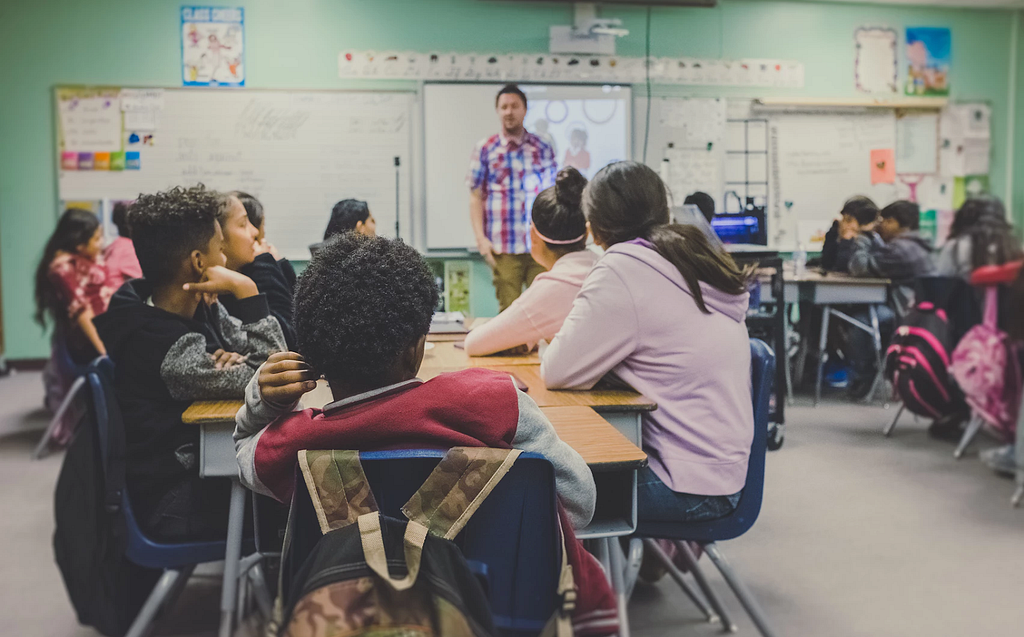Latest news about Bitcoin and all cryptocurrencies. Your daily crypto news habit.
 Image credit: Unsplash
Image credit: Unsplash
For the past decade, there were a lot of startups that disrupted education all over the world and made knowledge more accessible. It seemed that all major changes are made, and there is no room for significant improvements.
However, the new generation of startups proving these claims wrong implementing new approaches that are fixing flaws that are still present in modern education and its processes.
Delphia: choosing a college with the help of AI
Representing 2018 Spring’s YC batch the Delphia startup team is working on an AI tool that helps people make important life decisions, like choosing a college and major. High-school students are offered to take a 40-question survey, information then is processed by an AI which generates recommendations on what schools and programs may be the best fit.
Canada-based company’s CEO Andrew Peek also mentioned in the media that the system was trained on datasets collected from surveys of recent university grads. If the user is not happy with received recommendations he or she can let the system know, so that AI could recalibrate itself
While education is an important and inspiring niche to explore with planned partnerships with universities, Delphia team does not plan to focus on it solely. For example, the company licensed its surveying tools to media companies (VOX etc.)
W1D1: new way to learn to be creative
Founders of the New York-based W1D1 project Alexey Ivanovsky and Andrew Chernoguzov tell that they were working on a bunch of projects for several years when finally realized what is really broken in our world. It is creativity. Nowadays a lot of people who might do something from photography to music believe that “it is too special for regular man or girl like me.”
Current approaches to creative learning also can’t solve this problem. Photography or music schools are usually dull, especially for young people. They grow up with the idea that being creative is a privilege that is not granted to everyone. And even if they feel thirsty for some creativity in their life, the only thing they could do is to attend painting classes, no ideas beyond that.
W1D1 app is aiming to fix this. It is a tool which can be used to explore creativity. Users sign up and start receiving creative tasks which leave enough room for creativity but also set boundaries. For example, an app may say to check some Saul Leiter photos, and then try to capture similar moments on the street of the user’s city. There are freedom and strict understanding of what to do, and such combo is perfect for starting doing creative things.
The application also features AI which studies user’s preferences and results to offer him or her better group for learning.
Big Green: food literacy for schoolkids
A non-profit startup launched by Kimbal Musk wants to teach “food literacy” from school age. Obesity rates among kindergartners reach up to 20% in some states. It is a real public health problem, comparable to smoking. The idea behind Big Green is to build school gardens in low-income areas (means 60% of pupils there qualify for free or reduced lunch). Students will be able to grow fresh fruits and vegetables and eat them as well.
High-school level participants should be able even to sell their fresh produce at farmer’s markets. The startup’s program is already covering over 400 schools with dozens to come. Kimbal Musk revealed his plans to expand to poor districts in 10 major US cities and reach 1 million students, by 2020.
What new exciting education startups do you know? Share in the comments.
How New Startups Are Disrupting Education was originally published in Hacker Noon on Medium, where people are continuing the conversation by highlighting and responding to this story.
Disclaimer
The views and opinions expressed in this article are solely those of the authors and do not reflect the views of Bitcoin Insider. Every investment and trading move involves risk - this is especially true for cryptocurrencies given their volatility. We strongly advise our readers to conduct their own research when making a decision.